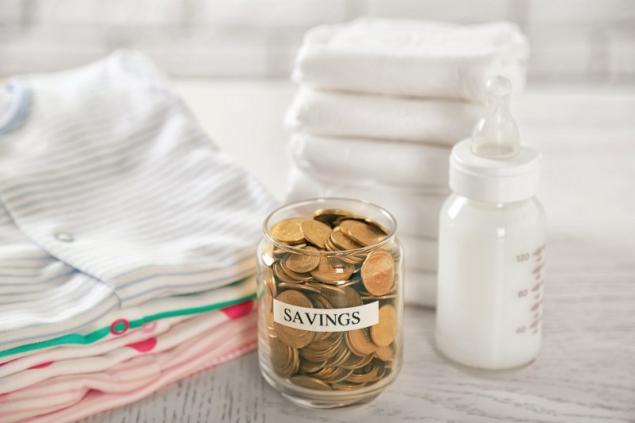161
Pros and cons of late motherhood
"I'll tell you what, my dear..." Becoming a mother makes you feel better than ever, but only if you were ready. You need to be careful first. plan out your pregnancy, and before that to arrange your life as a whole , - said our class leader to a classmate, when she said that she was going to become a mother no later than 20 years.
It was in high school, one of the biology classes. We were just going through the story of the female reproductive system. After the usual presentation of the material, the teacher turned to the class with a question about what age, in our opinion, should have children. The boys did not get too caught up in the topic, but there was a heated discussion between the girls.

We made many arguments in favor of both early motherhood and late motherhood, and then Valentina Stepanovna expressed her opinion on this issue. In general, after many years, this question remained open to me, because on the one hand, there is a lot of common sense in the words of the class leader, and on the other, there are good reasons for doubt.
We're with the editors. "Site" We decided to decide whether to have children in adulthood or become a mother early.
Every woman dreams of becoming an impeccable mother for her unborn child. But is this possible when the pregnancy was unplanned or when you don’t have enough internal and external resources to properly raise the baby? Hardly.

Maternity school It is not as rosy as some people think it is. This is something that needs to be prepared for a long time and carefully. At 20, you’re just beginning to understand what you really want out of life, and you’re learning to make informed decisions. And sometimes it seems that the number in the passport is some ridiculous mistake and you just have to go to university, move from your parents and start an independent adult life.

Of course, all girls are different, one may be. Psychologically ready for the birth of a child 18 years old, and the other does not dare to get pregnant at 35. But it’s not just about psychological readiness.
Young mothers who do not have a dozen wealthy relatives behind them and their own financial stability will face unprecedented stress. Perhaps the first thing to think about before you decide to get pregnant is what you can give your baby, besides love.

Some may consider this blatant commercialism, but statements like “apart from motherly love, the child does not need anything” seem ridiculously naive to me. Got it! And it takes a lot.
It should be understood that the birth of a child requires a large financial cost. Proper nutrition, constant trips to pediatricians, developing lessons, toys, wheelchairs and so on. On some diapers will have to spend half of the average salary, what to say about the future, when it will be necessary to arrange a child in a good kindergarten, and then school.

At 40, you’re more likely to be financially stable and confident that you won’t have much trouble. provide everything necessary. You probably won’t have to go through a few jobs and miss out on the most important moments in your baby’s life because of your busy life.

Happy motherhood 40 years is more likely because a woman by this age usually has time to gain life experience, become wiser and more reasonable. She will be more patient and understanding about situations and changes in her child’s life that, at 25 or 30 years old, would have horrified or stumped her.

The researchers also looked into this issue, and this is what they found. Women who give birth later are more likely to live longer. The researchers suggested that the reason lies in genetics. "If a woman's reproductive system is functioning well at this age, then other processes, including those associated with aging, may have positive characteristics," they explained.

It has also been found that Women who give birth after 35 yearsThey have better verbal memory. It is assumed that this is due to the effect of hormones on the brain, in particular estrogen and progesterone, responsible for brain function and the development of brain tissue.

On the other side of the scale are all sorts of risks of late pregnancy. First, the chance of getting pregnant after 32 years is sharply reduced due to a decrease in the number of eggs and possible disorders in the organs of the reproductive system of a woman.

At the same time, the risk of all kinds of diseases increases. A study showed that women who gave birth after 35 were 50% more likely to have serious diseases than those who decided to give birth at a younger age.

However, medicine has now reached a level where many diseases can be prevented and cured. Experts note: “If during pregnancy to pay special attention to the bones, to monitor nutrition and loads, even in 40 years you can easily give birth to a healthy and strong baby, without harming your body.”

At any age, any change, including pregnancy, is a risk. Every woman has only one question to answer before deciding whether to postpone pregnancy: “What risk am I willing to take?”
It was in high school, one of the biology classes. We were just going through the story of the female reproductive system. After the usual presentation of the material, the teacher turned to the class with a question about what age, in our opinion, should have children. The boys did not get too caught up in the topic, but there was a heated discussion between the girls.

We made many arguments in favor of both early motherhood and late motherhood, and then Valentina Stepanovna expressed her opinion on this issue. In general, after many years, this question remained open to me, because on the one hand, there is a lot of common sense in the words of the class leader, and on the other, there are good reasons for doubt.
We're with the editors. "Site" We decided to decide whether to have children in adulthood or become a mother early.
Every woman dreams of becoming an impeccable mother for her unborn child. But is this possible when the pregnancy was unplanned or when you don’t have enough internal and external resources to properly raise the baby? Hardly.

Maternity school It is not as rosy as some people think it is. This is something that needs to be prepared for a long time and carefully. At 20, you’re just beginning to understand what you really want out of life, and you’re learning to make informed decisions. And sometimes it seems that the number in the passport is some ridiculous mistake and you just have to go to university, move from your parents and start an independent adult life.

Of course, all girls are different, one may be. Psychologically ready for the birth of a child 18 years old, and the other does not dare to get pregnant at 35. But it’s not just about psychological readiness.
Young mothers who do not have a dozen wealthy relatives behind them and their own financial stability will face unprecedented stress. Perhaps the first thing to think about before you decide to get pregnant is what you can give your baby, besides love.

Some may consider this blatant commercialism, but statements like “apart from motherly love, the child does not need anything” seem ridiculously naive to me. Got it! And it takes a lot.
It should be understood that the birth of a child requires a large financial cost. Proper nutrition, constant trips to pediatricians, developing lessons, toys, wheelchairs and so on. On some diapers will have to spend half of the average salary, what to say about the future, when it will be necessary to arrange a child in a good kindergarten, and then school.

At 40, you’re more likely to be financially stable and confident that you won’t have much trouble. provide everything necessary. You probably won’t have to go through a few jobs and miss out on the most important moments in your baby’s life because of your busy life.

Happy motherhood 40 years is more likely because a woman by this age usually has time to gain life experience, become wiser and more reasonable. She will be more patient and understanding about situations and changes in her child’s life that, at 25 or 30 years old, would have horrified or stumped her.

The researchers also looked into this issue, and this is what they found. Women who give birth later are more likely to live longer. The researchers suggested that the reason lies in genetics. "If a woman's reproductive system is functioning well at this age, then other processes, including those associated with aging, may have positive characteristics," they explained.

It has also been found that Women who give birth after 35 yearsThey have better verbal memory. It is assumed that this is due to the effect of hormones on the brain, in particular estrogen and progesterone, responsible for brain function and the development of brain tissue.

On the other side of the scale are all sorts of risks of late pregnancy. First, the chance of getting pregnant after 32 years is sharply reduced due to a decrease in the number of eggs and possible disorders in the organs of the reproductive system of a woman.

At the same time, the risk of all kinds of diseases increases. A study showed that women who gave birth after 35 were 50% more likely to have serious diseases than those who decided to give birth at a younger age.

However, medicine has now reached a level where many diseases can be prevented and cured. Experts note: “If during pregnancy to pay special attention to the bones, to monitor nutrition and loads, even in 40 years you can easily give birth to a healthy and strong baby, without harming your body.”

At any age, any change, including pregnancy, is a risk. Every woman has only one question to answer before deciding whether to postpone pregnancy: “What risk am I willing to take?”























